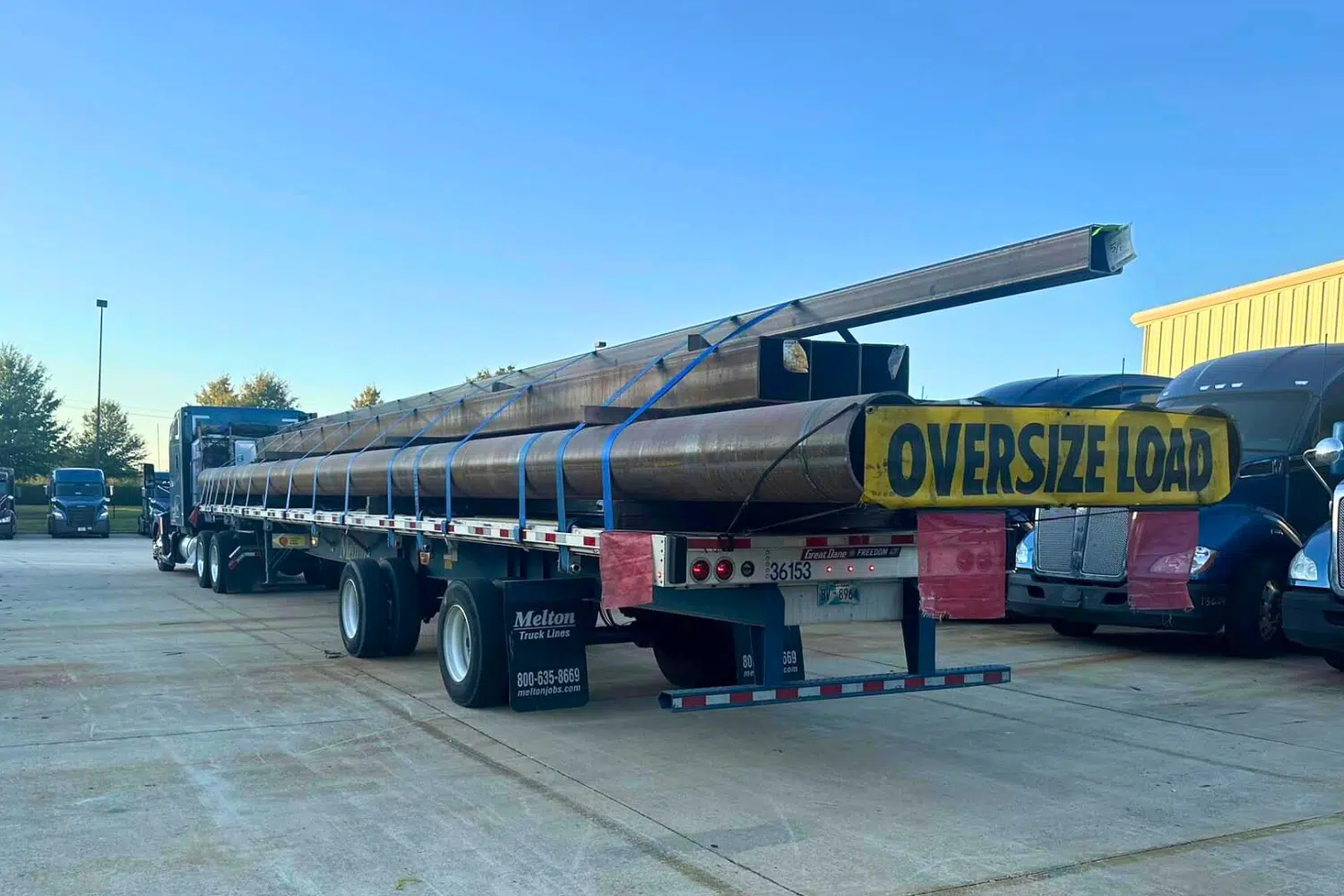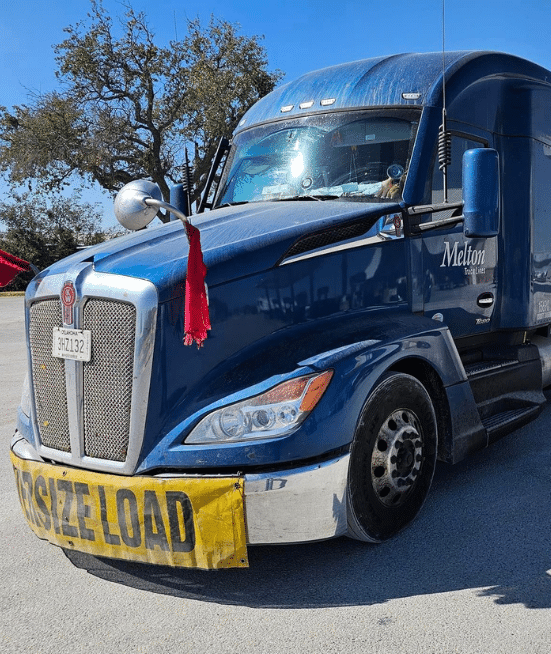
How Melton Secures Specialized Freight
Not every shipment fits neatly in a box, or even on a standard trailer. Some loads defy standard dimensions, shapes, or handling methods; these are what we refer to as irregular freight or specialty freight. It’s big, oddly shaped, or just plain complicated.
At Melton Truck Lines, we’ve built our reputation on being more than capable- we’re specialists in securing and transporting freight that others might consider too complex or difficult.
What Makes a Load “Specialty” in Shipping?
Specialized freight is anything that doesn’t meet standard shipping sizes or shapes. It might be:
- Oversized dimensions (height, width, or length)
- Non-standard shapes (cylindrical, conical, or non-organically shaped items)
- Heavy or dense cargo (such as industrial equipment)
- Fragile or sensitive materials that needs specialized care
- Loads that require specific or unique loading/unloading methods
- View the official size regulation guidelines from the DOT here.
Different states may have different reasons for each of these points, so it’s important to be aware of the regulations of the states your load may be travelling through.
These challenges necessitate more than just transportation; they require expertise in freight management and load security.
At Melton, we regularly handle freight that falls outside the norm, including:
- Construction machinery like excavators and bulldozers
- Wind turbine components
- Steel coils, beams, and plates
- Crated industrial engines or generators
- Prefabricated structures and modular buildings
Each of these items requires a unique approach when it comes to securement and transit.
Why Flatbeds are the Best Choice for Specialized Freight
Flatbed trailers offer unmatched versatility for specialty freight, and here’s why:
- No walls or roofs to constrain cargo dimensions
- Top, side, and rear access for flexible loading and unloading
- Easier accommodation for over-dimensional permits and escorts
- Adaptability to freight variety, from machinery to lumber to pipe
Flatbeds also make it easier to visually inspect securement throughout the trip, ensuring continual safety.

Best Practices for Securing Specialized Freight
At Melton, we understand that each load should be approached as something totally unique, and specialized freight is a prime example. Securing irregular freight requires planning, precision, and proven safety methods.
Here are some of the best practices that we recommend:
- Create Custom Securement Plans
Each load should receive a detailed securement plan tailored to its dimensions, center of gravity, and fragility. Additional equipment or personnel may need to be obtained to safely ship, store, or load/unload this type of freight, so it’s important to map out all of these details in advance.
- Using High-Quality Equipment
All trucks should be equipped with:
- Chains and binders
- Straps and edge protectors
- Dunnage and tarps (when needed)
- Specialty attachments for unique cargo types
This equipment should be regularly inspected and repaired or replaced when needed.
- Experienced and Well-Trained Drivers
All drivers should undergo extensive securement training in accordance with FMCSA regulations and internal standards. A Melton, our team prepares our drivers to know how to properly tension, inspect, and recheck loads on long hauls.
- Routine Load Checks
Drivers should perform securement inspections at regular intervals. Typically, these should be conducted after a certain mileage has been reached since pickup, or after 2 – 3 hours.
Flatbed drivers should inspect their loads during all routine stops to ensure they can catch any issues as they arise, whether they’re hauling a standard load or irregular freight.
How Melton Excels in Handling Specialized Freight
Melton Truck Lines has been moving freight since 1954, and our operations have been built around quality, safety, and flexibility.
- Exemplary Flatbed Fleet
- Our modern, well-maintained fleet of late-model equipment and flatbed trailers is purpose-built for odd-sized and challenging loads.
- Highly Trained Drivers
- From their first day on the job with us, our drivers go through extensive securement training to ensure every load is safe and compliant from pick up to drop off.
- Expert Logistics Coordination
- From initial quoting to route planning and permitting, our specialized services team handles complex details, so customers don’t have to.
Melton Truck Lines brings the tools, talent, and experience to deliver these loads with precision and care. Whether your shipment is oversized, unusually shaped, or simply out of the ordinary, you can count on Melton to deliver it safely, efficiently, and professionally.
Reach out to us today to learn how we can support your unique transportation needs!
